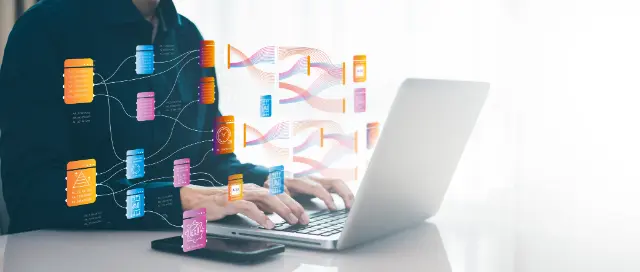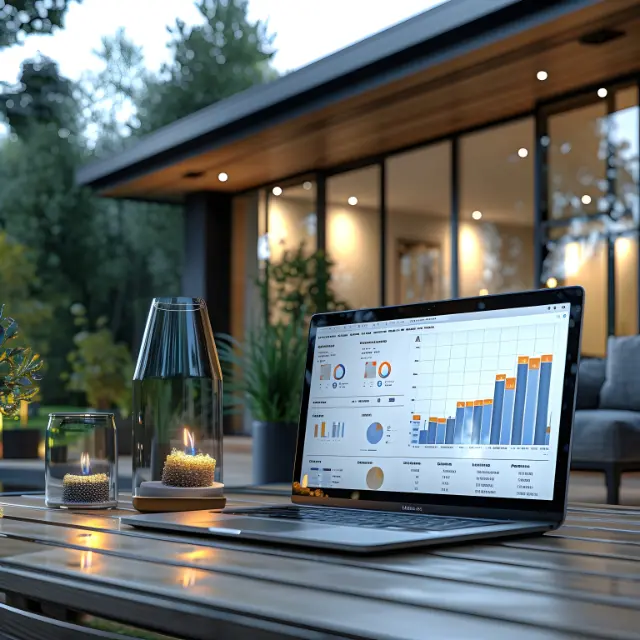Revolutionizing Utility Management with Intelligent Automation
In the ever-evolving real estate landscape, utility management automation has emerged as a transformative force, empowering property managers to streamline operations and enhance efficiency. The complexities of tracking utility usage, allocating expenses, and reconciling bills can be overwhelming, often leading to inaccuracies and inefficiencies.
Python, with its robust automation capabilities, and artificial intelligence (AI), with its ability to analyze vast amounts of data, offer powerful solutions for automating utility management. By seamlessly integrating utility meters with centralized monitoring systems, real-time tracking of consumption patterns becomes a reality. Expenses can be automatically allocated based on usage data, eliminating manual errors and ensuring fair billing.
Moreover, cloud-based solutions provide a secure and scalable platform for data storage and processing. This enables property managers to access real-time insights into utility consumption, identify anomalies, and proactively address issues. By leveraging the power of automation, the real estate industry can unlock significant benefits, fostering sustainability, reducing operational costs, and enhancing tenant satisfaction.

Python, AI, and Cloud: The Trinity of Utility Management Automation
Unleashing the Power of Unattended Bots with Python
Python’s versatility extends to developing unattended bots that can seamlessly automate routine utility management tasks. These bots can continuously monitor utility meters, collect consumption data, and automatically allocate expenses based on predefined rules. By eliminating the need for manual intervention, unattended bots enhance efficiency and minimize errors, ensuring accurate and timely billing.
Empowering Attended Bots with Python’s Customization
Attended bots, designed to assist human operators in performing tasks, also benefit from Python’s flexibility. With Python, property managers can tailor bots to their specific requirements, automating complex tasks that require human judgment or decision-making. This level of customization empowers property managers to optimize workflows and streamline operations.
Cloud Platforms: Orchestrating Automation at Scale
Cloud platforms offer a comprehensive suite of features that far surpass traditional RPA/workflow tools. Their scalability, reliability, and advanced capabilities make them ideal orchestrators for utility management automation. Cloud platforms enable the seamless integration of various systems and applications, allowing for end-to-end process automation.
AI: Enhancing Accuracy and Handling Edge Cases
AI plays a crucial role in improving the accuracy and robustness of utility management automation. Techniques like image recognition can automate meter readings, eliminating manual errors. Natural language processing (NLP) enables bots to understand and process unstructured data, such as utility bills. Generative AI can assist in predicting consumption patterns and identifying anomalies, empowering property managers to proactively manage utility usage and expenses.
By leveraging the combined power of Python, AI, and cloud platforms, real estate businesses can achieve unparalleled efficiency and accuracy in utility management. This trinity of technologies automates complex tasks, reduces errors, and provides valuable insights, enabling property managers to focus on delivering exceptional tenant experiences and maximizing operational profitability.

Building the Utility Management Automation with Python and Cloud
The automation journey involves several key subprocesses, each of which can be seamlessly automated using Python and cloud technologies:
1. Data Collection and Monitoring
Python scripts can be deployed to collect real-time data from utility meters and sensors. This data is then stored in a centralized cloud database, providing a comprehensive view of utility consumption patterns.
2. Expense Allocation and Billing
Based on the collected data, Python algorithms can automatically allocate utility expenses to individual properties or tenants. Cloud platforms facilitate secure and accurate billing processes, ensuring timely invoice generation and payment processing.
3. Exception Management and Alerts
AI-powered anomaly detection algorithms can continuously monitor consumption patterns and identify any unusual deviations. Automated alerts can be triggered to notify property managers of potential issues, enabling proactive intervention.
Data Security and Compliance
Cloud platforms offer robust security features and compliance certifications, ensuring the protection of sensitive utility data. Python scripts can be designed to adhere to industry-specific regulations and data privacy standards.
Python vs. No-Code RPA/Workflow Tools
- Flexibility and Customization: Python provides unmatched flexibility, allowing for the development of highly customized automation solutions tailored to specific business requirements. No-code tools often lack this level of customization.
- Scalability and Performance: Python scripts can be easily scaled to handle large volumes of data and complex automation tasks. No-code tools may face limitations in handling high-volume workloads.
- Integration with Cloud Platforms: Python seamlessly integrates with cloud platforms, leveraging their advanced capabilities for data storage, processing, and automation orchestration. No-code tools may have limited integration options.
Algorythum’s Python-based approach empowers businesses to overcome the limitations of off-the-shelf automation platforms. By leveraging the flexibility, scalability, and cloud integration capabilities of Python, we deliver tailored utility management automation solutions that meet the unique needs of our clients.

The Future of Utility Management Automation
The convergence of Python, AI, and cloud technologies has unlocked a world of possibilities for utility management automation. As these technologies continue to evolve, we can expect even more innovative solutions that will further enhance efficiency and sustainability in the real estate industry.
Integration with Smart Buildings
As smart building technologies become more prevalent, utility management automation can be seamlessly integrated to optimize energy consumption and reduce operating costs. Automated systems can monitor and adjust lighting, HVAC, and other building systems based on real-time usage data.
Predictive Analytics and Demand Forecasting
AI-powered predictive analytics can help property managers forecast utility demand and consumption patterns. This information can be used to optimize purchasing strategies, negotiate better rates with suppliers, and identify opportunities for conservation.
Blockchain for Secure Transactions
Blockchain technology can enhance the security and transparency of utility billing and payment processes. Automated systems can use blockchain to create tamper-proof records of transactions, ensuring accurate and timely payments.
Sustainability and Conservation
Utility management automation plays a crucial role in promoting sustainability and conservation efforts. By providing real-time insights into consumption patterns, property managers can identify areas for improvement and implement targeted conservation measures.
Subscribe and Connect
Stay up-to-date with the latest trends and best practices in utility management automation by subscribing to our newsletter. Contact our team today for a free feasibility assessment and cost estimate for your custom automation requirements. Together, we can unlock the full potential of utility management automation and transform your real estate operations.

Algorythum – Your Partner in Automations and Beyond
At Algorythum, we specialize in crafting custom RPA solutions with Python, specifically tailored to your industry. We break free from the limitations of off-the-shelf tools, offering:
- A team of Automation & DevSecOps Experts: Deeply experienced in building scalable and efficient automation solutions for various businesses in all industries.
- Reduced Automation Maintenance Costs: Our code is clear, maintainable, and minimizes future upkeep expenses (up to 90% reduction compared to platforms).
- Future-Proof Solutions: You own the code, ensuring flexibility and adaptability as your processes and regulations evolve.









